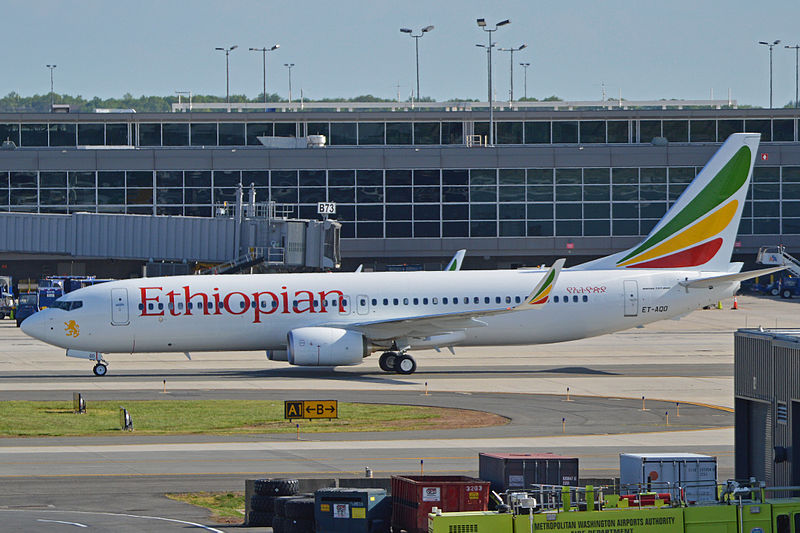
Boeing 737-800
Alan Wilson, CC BY-SA 2.0, via Wikimedia Commons
A CNN investigation concluded that Ethiopian Airlines had used its planes to transport weapons to and from Eritrea during the Tigray conflict, but the airline recently denied it did so.
The investigation cited "cargo documents and manifests" and "eyewitness reports and photographic evidence" that would confirm that the weapons were transported on Ethiopian aircraft between Addis Ababa International Airport and Eritrea's Asmara and Massawa airports in November 2020.
From letters examined by CNN, the agency claims to have discovered that “on at least six occasions – from November 9th to 28th – Ethiopian Airlines invoiced Ethiopia's defense ministry tens of thousands of dollars for military items, including weapons and ammunition, to be sent to Eritrea”.
The agency also stated that in these letters there were terms and abbreviations, such as "military reload", "AM" for ammunition and "riffles", which would be a misspelling for rifles. CNN also cited interviews with airline officials who confirmed the terms.
If these allegations are true, it would constitute a violation of international aviation law that prohibits the use of civil aircraft for the transport of military weapons. In addition, Ethiopian Airlines' participation in the Star Alliance, a lucrative group made up of 26 global airlines, could also be jeopardized.
Ethiopian Airlines responded to CNN that it “strictly complies with all national, regional and international regulations relating to aviation” and that “to the best of its knowledge and records, it has not carried any weapons of war on any of its routes by any one of its aircraft." The Ethiopian and Eritrean governments did not respond to CNN's requests for comment on the story.
The Tigray conflict began in November 2020, when the Ethiopian government accused the Tigray People's Liberation Front (TPLF) of attacking a federal military base. The TPLF is the northern region's ruling party that dominated national politics for decades. In response, Ethiopia's Prime Minister Abiy Ahmed sent federal troops to Tigray for a military campaign against the TPLF, who denied responsibility and said the reported attack was a pretext for an "invasion", telling Al Jazeera that was the target of a “coordinated attack” by the federal government of Ethiopia and Eritrea.
Since then, a brutal war has unfolded in Tigray, with reports of massacres, rapes and other abuses. Thousands of people were killed and nearly two million more left homeless, in addition to the hundreds of thousands facing starvation conditions, with more than 22% of people suffering from malnutrition in the Tigray region, forced to survive on leaves, roots and flowers, according to with a statement by the United Nations humanitarian chief, Martin Griffiths. According to him, this situation is a “stain on our conscience”.
The UN had warned in early September that the humanitarian crisis in the region would "dramatically worsen".
Grant Leaity, UN humanitarian coordinator for Ethiopia, said in a statement on Sept. 2: "Humanitarian aid, cash and fuel stocks are dwindling or are completely depleted." He added that food stocks ran out on 2 August.
“The region remains under a de facto humanitarian aid blockade, where access to deliver life-saving humanitarian aid remains extremely restricted,” said Leaity, noting that no trucks have made it into Tigray since 22 August.
Information is from Al Jazeera.



 Gabriela Ramos
Gabriela Ramos
Gabriela is the latest addition to the editorial team of our website, having provided us with her solid background in editing, publishing and photography, and her interest and training in aviation history and historiography. His good taste and common sense and great cleverness and sagacity in the selection of themes and materials greatly enriched our vocabulary and narrative style. Gabriela brought unusual predicates and came to stay, helping to point the way of success of our portal.
   
|
